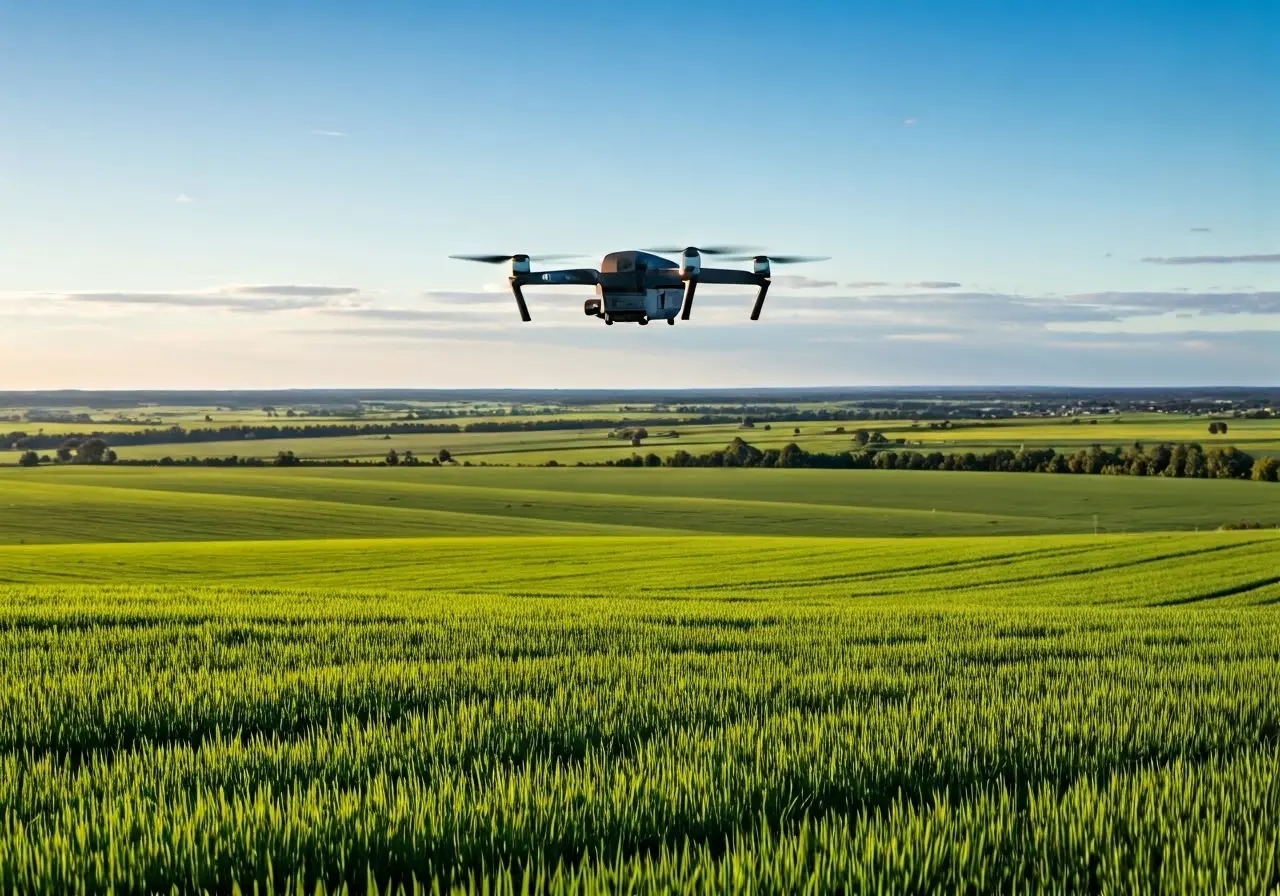Smart farming drones have revolutionized traditional farming practices by providing advanced technology to enhance agricultural productivity. In this blog, we explore the critical role these drones play and why they are becoming essential tools for modern farmers.
What Are Smart Farming Drones?
Smart farming drones, or unmanned aerial vehicles, are designed specifically to assist farmers by providing a bird’s-eye view of their fields. Equipped with high-tech sensors and cameras, these drones enable farmers to gather real-time data essential for managing their crops effectively. By venturing beyond traditional methods, farmers can now leverage the capabilities of drones to perform difficult, time-consuming tasks with precision and efficiency. This technology helps transform agricultural practices, offering insights that were otherwise difficult to obtain from ground level.
These drones are more than just flying cameras. They act as specialized tools equipped with software that allows them to map fields, monitor crop health, and even perform targeted spraying of fertilizers and pesticides. Such capabilities not only enhance farm productivity but also help reduce costs and environmental impact. By replacing manual labor with automated, data-driven processes, smart farming drones assist in making informed decisions based on actual field conditions.
Enhancing Crop Monitoring
Imagine your farm as a vast expanse needing meticulous care. That’s where smart farming drones become pivotal, acting as your eyes in the sky to provide real-time, detailed imagery. This powerful technology enables farmers to identify issues such as disease or pest infestations quickly and accurately before they turn disastrous.
Drones can perform assessments of crop health by capturing images that reveal patterns not visible to the naked eye. They can spot variations in crop color and vigor, which might indicate problems like nutrient deficiencies or disease. This level of monitoring allows farmers to intervene promptly, applying treatments exactly where needed. Through real-time data collection, drones provide an invaluable service in maintaining crop vitality and maximizing yield.
Using the perspective gained from drone footage, farmers can create detailed maps that pinpoint areas requiring specific attention. Such maps can serve as blueprints for addressing crop distress zones, optimizing irrigation, and managing field resources effectively.
Improving Crop Health and Yield
Smart farming drones contribute significantly to improving crop health by enabling precise interventions. With the aid of advanced sensors, drones can measure parameters like plant height, moisture content, and stress levels, allowing farmers to apply the right quantity of fertilizers or water at the right time.
This precision farming approach helps in minimizing resource wastage and increasing crop yields. As conventional farming techniques often lead to issues like over-fertilization, drones help ensure that interventions are not only timely but also accurately targeted, benefiting both the crop and the environment.
Efficient Resource Management
Resource management is a crucial factor in farming, and smart drones play a significant role in optimizing it. These drones collect and analyze data from various parts of the farm, helping farmers make informed decisions about resource allocation.
For instance, knowing exactly where irrigation is needed allows for reduced water usage, thereby conserving this precious resource. Similarly, applying fertilizers only where necessary minimizes the environmental footprint of farming activities and saves money in the long run.
By utilizing data provided by drones, farmers can implement sustainable practices that nurture the earth’s resources, aligning with broader agricultural goals of sustainability and environmental stewardship.
Cost and Time Savings
One of the major advantages of using smart farming drones is the reduction in labor costs and time efficiency. Drones can cover vast areas swiftly, performing tasks like field mapping, crop monitoring, and even pesticide application that would otherwise take days manually.
By offering efficient agricultural solutions, drones free up farmers to focus on planning and management rather than operational tasks. This translates into significant savings, as the cost of manpower and time spent on maintenance diminishes drastically with the use of these flying allies.
Moreover, the initial investment in drone technology pays off over time, as it allows consistent monitoring of crop conditions and early detection of problems, leading to better-managed operations and increased productivity.
The Indispensable Value of Smart Farming Drones
Incorporating smart farming drones into agricultural practices is not just a trend but a necessity for sustainable and efficient farming. Their ability to monitor, analyze, and streamline farming tasks leads to healthier crops and improved yields, proving their indispensable value to farmers.



